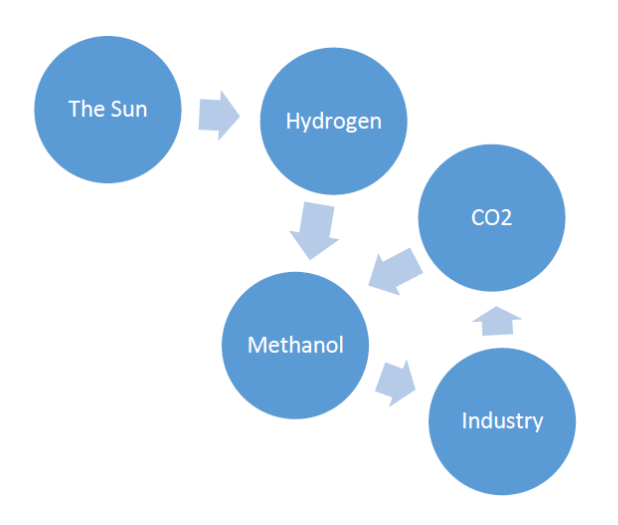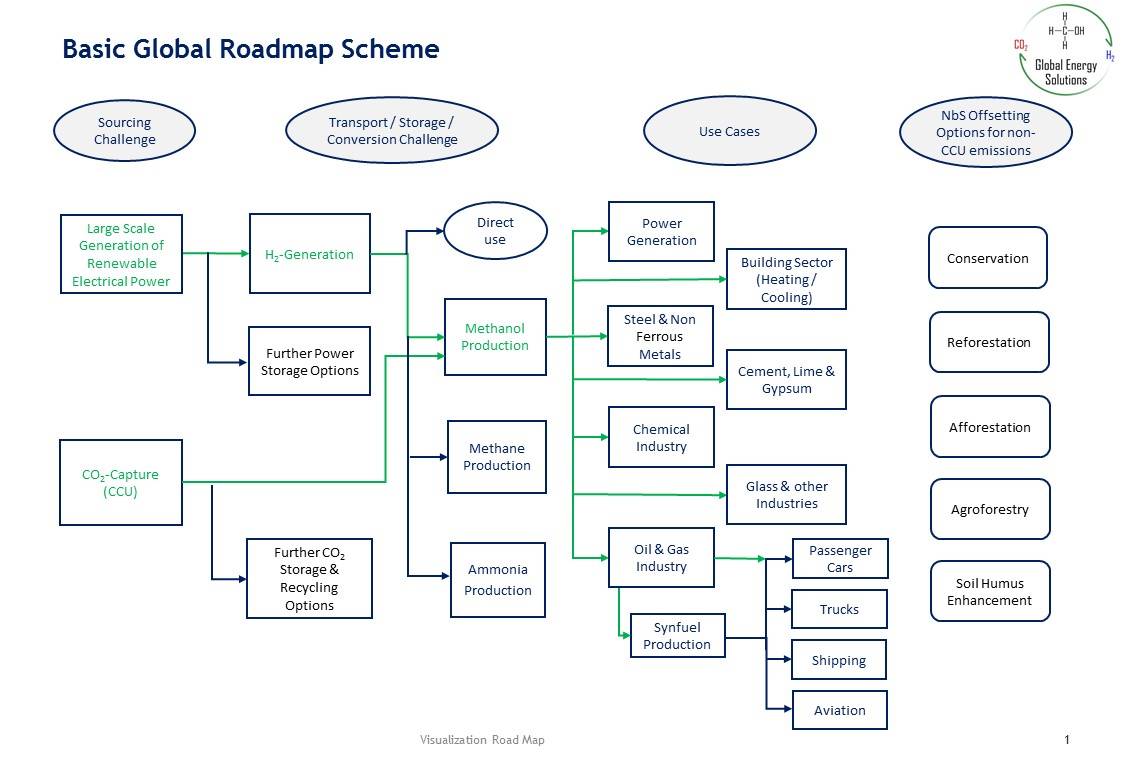Green hydrogen is currently in high demand. In public debates it is usually considered a solution to the storage problem of green electricity. However, the many proposals and activities do not yet result in a consistent and economically feasible strategy. We would like to change this.
The starting point is to generate large quantities of green electricity at low cost. This is only possible in Earth’s sun deserts and coasts, using solar and wind energy. Be it in Africa, the Arab world, China, South America or Southern Europe, for example in Greece.
Put simply, the production chain of carbon neutral fuels looks like this: Large amounts of solar power are generated in the desert. Using this electricity, hydrogen is produced by electrolysis. By adding CO2, for example, “green” methanol is obtained and in further steps liquid and carbon neutral fuels are produced. The carbon is recycled and becomes a valuable economic good. The more loops are connected in succession (multiple recycling), the lower the emissions. Via Nature-based Solutions, the remaining emissions are offset and removed from the atmosphere.


Concept Papers
Ist Wasserstoff ein Klimagas? Technical Report
2023.
CO2-Emissionen vermeiden mit Carbon Capture Working paper
2023.
Trugschlüsse und Inkorrektheiten in der Energie- und Klimakrise Working paper
2023.
Energietransport ist Grundlage für Wohlstand Technical Report
2022.
Ozeane als Senke für anthropogenes CO2 Technical Report
2022.
Potential von hydrierten Pflanzenölen und pflanzlichen Altölen als „grüner“ Treibstoff Technical Report
2022.
Kein Net Zero ohne Carbon Capture – Vier Studien im Vergleich Technical Report
2022.
Klimafreundlicher Stahl Technical Manual
e.V., Global Energy Solutions (Ed.): 2022.
Ergebnisse / Positionierung GES Stand September 2022 Working paper
2022.
Results / Positioning GES Status August 2022 Working paper
2022.
Klimagas Methan – Umfang und Kontrolle von LNG-Vorkettenemissionen Technical Report
2022, (Hintergrundpapier).
Synthetische Kraftstoffe unverzichtbar Technical Manual
2022, (Positionspapier).
Zur Debatte über ein Verbot von Neuwagen mit Verbrennungsmotor Technical Manual
2022, (Positionspapier).
Transport von Wasserstoff Masters Thesis
2022.
Erzeugung und Speicherung grünen Stroms Technical Report
2022, (Hintergrundpapier).
Wasserstoffproduktion Technical Report
2022, (Factsheet).
Carbon Capture and Storage / Usage (CCS/CCU) Technical Report
2022, (Factsheet).


